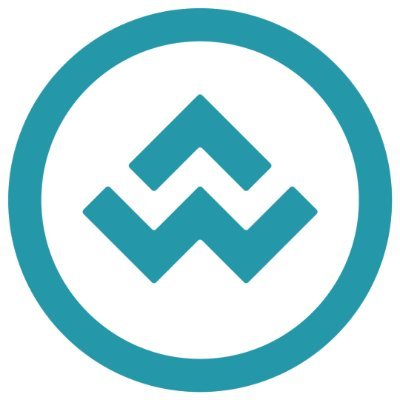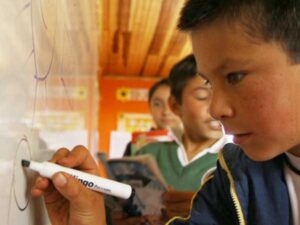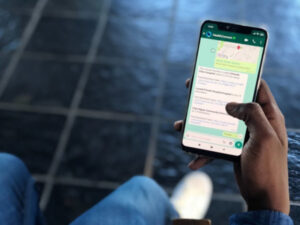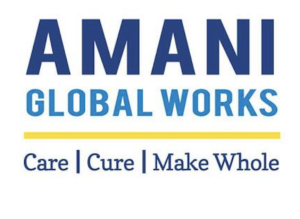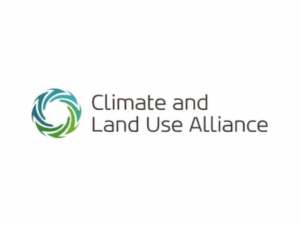WorkMoney brings together experts who help consumers save money on everyday expenses. The organization has over five million members.
Carrie Joy Grimes of WorkMoney spoke with Lissa Harris on February 8, 2024. Click here to read the full interview with insights highlighted.
Lissa Harris: Could you start out by introducing yourself, your organization, and talk about the problem that you’re trying to solve and how you’re specifically engaging with it?
Carrie Joy Grimes: I am Carrie Joy Grimes, and I am the Founder/CEO of WorkMoney.
WorkMoney is a nonpartisan nonprofit with over 6 million members in every state and territory in the United States with a few folks in Canada.
We are the AARP of everyday folks but about money. We help millions of people raise their incomes, lower their costs, increase their financial security, and feel a sense of agency around their financial lives in a way that helps them participate in civic life.
I came to this work as a middle-class person from a blue collar family whose grandparents are from Evansville, Indiana; my grandma, Rachel Ashton, worked at the women’s department at Sears while my grandpa, Charlie Ashton, worked at the Whirlpool factory. They elbow greased their way to a good working class life.
I love to tell the story about how my grandpa bought himself a low-end but brand new Cadillac Eldorado when he retired. It was one of the first cars that had a voiceover that would tell you things like, “Your door is ajar.” My grandpa loved sitting in the driveway to close his door over and over again just to hear that voice. They were so proud of the life they built; so I grew up in a family where we really believed that hard work gets you a good life. They exuded those values.
Now, it’s hard to imagine that kind of blue collar factory job being able to afford a Cadillac at retirement. In today’s economy, 147 million people can’t even afford a thousand dollar emergency. That’s just about half of all adults not able to afford a good life.
When I launched WorkMoney in 2020, I wanted to help people understand and achieve financial security and to use the strength of everyday folks to shape the economy. Today, we have six million people all over the country working together to take personal responsibility for money, not only to do better individually but also figure out how to shape their communities so that we can all succeed.
Lissa Harris: Can you talk more about the people that you are working for/with? For example, how are they benefiting from your work? How do you engage with them?
Carrie Joy Grimes: Usually, most people find us through an ad on the internet. When they sign up with their information, we immediately contact them via text message to welcome them to our platform and start a conversation about their financial goals — are they trying to save money? Are they trying to raise their income? Those kinds of things.
We have high engagement; about a quarter of our members have replied to us ten or more times, while half our members have replied three or more times. We’re always thinking about how to add value — save a dollar or add a dollar in their pockets — and get people to understand that they’re part of something much larger than themselves. One of our biggest surprise learnings is how lonely and alone people feel in their financial insecurity.
It’s not only that they can’t get by, it’s also that they have no one to talk to or ask for help. These are folks who are making enough money that it should feel like they’ve ‘made it’ but even the families with incomes you’d expect to be fine are still patching together paycheck to paycheck; still figuring out how to afford things. There’s an income ladder as life brings new expenses like their child going to college or buying/owning a home.
I thought that arithmetic would be the focus of our work; that we would just put dollars in their pockets and fix the problem. What we’ve really learned is that it’s important that people know they’re not alone in it, so we work really hard to be warm. We care deeply about every single one of our members and their individual experiences, so we spend a lot of time making sure people know that too.
Lissa Harris: What makes your approach distinctive from other people that are working in this space? What makes you different?
Carrie Joy Grimes: We start from the heart, from a place of caring about how somebody is doing. We understand that financial insecurity is a feeling-based experience. I’m not saying there isn’t the math part of it — dollars, spreadsheets, spending — but how people feel about that is a really important thing to understand. We take that really seriously at WorkMoney.
We’re not just throwing math at you. We focus on building deeper relationships with people. We want to make sure that what we’re doing makes sense and actually helps them achieve financial security. Being able to communicate with so many people over text and email is pretty rare. We understand the importance of people trusting the messenger and the information they’re receiving; that’s the first step in someone’s willingness to take action. So, we invest heavily in the relationship from the beginning.
Lissa Harris: Can you share a story that illustrates the impact of the work?
Carrie Joy Grimes: Oh my gosh, I have a gajillion of them.
One is about Mr. Richards who owned a business in Alabama. During COVID, like a lot of things, his whole financial world got turned upside down. He’s a pretty conservative guy — generally not one to speak out — but after working with WorkMoney, he was willing to tell his story in an op-ed to explain what he was going through and what he needed.
Through that, he found new investors that opened his doors to restart his business. His life and the lives of his employees were transformed through his work with WorkMoney. He’s a lovely example of how we’ve worked with our members to share what’s happening with them in order to take leadership roles in their communities to advocate for programs and policies that they support.
Another very common example is our member, Krista, from Hershey, PA. If you’ve ever been to Hershey, it does actually smell like chocolate! During COVID, she was laid off from the Kit Kat factory. Everything got downsized, and her money life got turned upside down. Since then, we’ve really been trying to figure out how to help her afford the basics while she finds a living wage job post-COVID.
For example, we got her connected to the internet through the Affordable Connectivity Program, which provides a $30 discount on her internet and phone bill. She’s now reconnected to the outside world; she can do things like seek out remote work or talk to family and friends who live outside of Hershey. It’s not just about the dollars in her pocket; it’s her sense of community, her sense of agency, and her sense of being part of something bigger.
Lissa Harris: Are you creating a knowledge base on federal, state, and local programs? How are you tracking the savings, benefits, and tax credits that are available?
Carrie Joy Grimes: A core part of our heartbeat is making sure that folks who pay taxes — who invest in and have built our government — get the return on that investment.
A major piece of our work is that all our members can call, text, webchat or email us to ask if they qualify for any one of seventy-five government programs. Right now, we’re able to connect people to twenty different programs at the federal-level and a handful of state programs. By the end of this year, we’ll be able to do that for seventy-five different programs in all fifty states.
Usually, if you qualify for one thing, you qualify for other stuff. That isn’t just for folks who are lower income; there are also tax credits that are not income dependent. By the end of the year, the world will become your oyster. Four big bills were passed through Congress and the Biden Administration over the last couple of years. It covers everything from changing appliances to insulating houses to making sure you have the cheapest electricity in your neighborhood.
We have a very technical backend with close to two hundred folks manning phones and doing peer-to-peer text messaging that are helping folks figure out what they qualify for and get them connected to that resource.
It’s a lot of work to figure out because not only are the programs different, but how each state administers some of those programs are very different. We need to really understand the point of connection from the member to the program, and we have a large team that helps people understand and map that out so that the experience is a seamless one for our members.
Our biggest challenge right now is when they qualify for many things. It doesn’t work to fire hose somebody with ten things they should apply for right now. We have to lift up the right things at the right time, then follow up with the next thing and then the next thing. Once we have their basic information, we can understand the likelihood that they might qualify for something else.
It’s working, and I’m proud of our team. We’ve put more than half a billion dollars in the pockets of folks since we started. Our goal is to connect a million people to a resource by the end of the calendar year.
Lissa Harris: Is there a fee for using the service? Or is it philanthropically-funded and provided as a free service?
Carrie Joy Grimes: A hundred percent. That’s right. We raise the money and we pass that on to the folks.
Lissa Harris: Are there lessons that can be taken from your work that others may be able to use and learn from? How can other people recreate your success?
Carrie Joy Grimes: One thing that keeps me up at night is knowing that what we’re doing is working, so how do we get big enough, fast enough? There’s so much need. If there are others interested in this work, I would be cheering them on.
Local governments are trying so hard, but they are understaffed, underfunded, and under-resourced. They’re not able to tell people about these kinds of things that are available because of the amount of work they already have to do.
I’ve come to realize that good, old-fashioned advertising can really work. I think we don’t make enough of an investment to make sure folks understand what programs are available to them. People make this investment as taxpayers, they should get that back.
I can’t emphasize that awareness piece enough. It feels like we’ve made this excellent ‘movie’ through all the policies that folks advocated for but nobody knows it’s playing.
If I would wave a wand and ask philanthropy to do one thing, it would be to help those of us who are willing to take on some of the work that local and state governments don’t have the bandwidth to do. I’m willing to be the connector because it needs to happen, and the one thing I can’t do is reach enough people fast enough.
Lissa Harris: What’s your work with organizations and government on this front? Or are you mainly reaching out to individuals?
Carrie Joy Grimes: We have a whole network of partner organizations at the state and local levels. We work less directly with government, although that is definitely on our list of things we want to be doing. It’s a development and capacity thing; we wanted to focus on the top of the funnel first because we saw it as the biggest need.
We spent our first year really focused on the members — the person and their experience — to really understand what people are going to gravitate towards.
We’ll know a lot more about that by the end of the year, and we can share that with the local, county, and state governments when we build those partnerships. We’re in conversations but not formally partnered. We want to be able to make sure the folks who have the most qualification but least knowledge get through the door. That’s on our list of things to do.
Lissa Harris: How do you measure success? What evidence do you use to check if you’re making progress?
Carrie Joy Grimes: We track engagement, which looks and feels like several different things.
Easiest engagement to track is the response rates to text messages and emails. Like I mentioned earlier, just about a quarter of our members have replied to us ten or more times, while about half our members have replied to us three or more times. That’s a jaw dropping number for a list of our size. That’s one way that we look.
But engagement isn’t always the best way to tell if something’s working. Some folks are very interested but have never replied to us. We do ethnographic work to call and meet those members. What we found is that they consume all the information we send them, and it doesn’t mean that they’re paying less attention. There’s a lot of numbers to track, but there is also qualitative work — understanding our members, and understanding what’s going on and why members are not engaging with us.
We have an ongoing monthly survey for our members where we talk to somewhere between 1000 to 1500 people per month through an online panel to check-in about the things that matter to them. Like I’ve said before, this is how people feel about their financial security and their community.
The feelings are an important metric in this. Are they feeling secure, happy, and hopeful? What are things happening that make them feel insecure, worried, scared, or afraid? Measuring if it’s working isn’t just about the dollar, it’s about whether people are happier to have the dollar there. We think about what’s working from a member value perspective.
We also do things like ask our members for one or two words that describe WorkMoney to them in big text surveys. Recently, we had a member use more than three words — she gets a hall pass — and say that she finds WorkMoney to be “very helpful, a voice for American families, and thank you for being my friend that has my back.” It’s that kind of stuff that measures how our members feel about finding their agency and taking action. Telling stories shapes how people understand what’s working and what isn’t. We check-in on how they’re making their voices heard in government.
A good example is how the Department of Labor was considering raising their overtime threshold — which is currently pretty low. An overtime threshold means that if you make up to a certain amount of money, you don’t get overtime. The rule has not been published yet, but we had people come testify at hearings at the regional level by sending thousands of comments and stories. People also made videos, which we shared.
That new rule — which I believe will get adopted — will be a huge raise for over 3.6 million working Americans. That kind of policy change doesn’t happen because somebody wakes up and decides to do it; it happens because working- and middle-class folks get together and make sure their government understands what we expect.
3.6 million people getting a raise? That’s a pretty good indicator. I’ll take that KPI [Key Performance Indicator].
Lissa Harris: Social innovators often learn as much from things that don’t work as things that do. Is there an example of something that you tried that didn’t work but that you learned something important from?
Carrie Joy Grimes: I kind of referenced this earlier. When I started out, I was really focused on just delivering the dollar in the pocket. I didn’t understand the need to build community and the connection to something greater.
People were happy about the dollar in the pocket; they loved the coupons and discounts, but that didn’t land as impactfully for them. It didn’t feel as important or helpful as when we started paying attention to how that made them feel. It’s the intersection of money and feelings.
We incorporate more of that in our communications. Some folks don’t really know or don’t really want to talk about their feelings. That’s okay. Then, we’ll focus on just the dollars and cents. But overall, we’re really leaning into the relationships and connections we build with people. That was an early lesson for us.
Lissa Harris: What are some barriers you’ve experienced to growing or getting your vision across about the change you want to see in the world?
Carrie Joy Grimes: I’ll just say that not enough people know about us. Using the analogy from earlier, we’ve made a really good movie and there’s not enough advertising out there for folks to come see it. Sometimes I worry that we’ve set up for this excellent party, but only 6% of the invitations went out. That’s one of our biggest barriers.
Another barrier is that there are some shady people out there who have their own agendas; they benefit from people not listening to each other and not being in community together. WorkMoney is aggressively nonpartisan. Everyone — no matter where you come from — deserves to work hard and live a good life.
We know that’s what everybody wants. It doesn’t matter what particular shade of politics you choose to inhabit or not. Everybody we talk to wants a path to something better and wants to know their families have bright futures. So, we work really hard to bring people together around that. We use strength in numbers to make that more possible, but there are others whose work is to divide people from each other. Barrier feels like the wrong world because barriers are things that exist in the natural world; this is like an opposition. Some folks profit and benefit from the stoking of that division. I see that as antithetical to the success of the working- and middle-class.
Lissa Harris: Are there examples of policy things that you’ve leaned into that have become politicized by outside actors? Or are there people trying to push your work into a partisan frame?
Carrie Joy Grimes: We don’t really experience much of that at WorkMoney because our members span the political spectrum. They’re probably more moderate than anything else, so we don’t really experience that push. On the broader scale, for example, minimum wage has become a very political issue over time. Otherwise, COVID was a really interesting time in that we got to watch people come together and navigate policy from the perspective of what people needed. That’s not a means to avoid your question, what I want to say is that I know we can do better because I’ve seen it. We’ve all seen us do better.
The cellular makeup of our organization is so aggressively nonpartisan. We go with where our members are; if our members aren’t there, we’re not going to be there. That’s why we do so much research and talk to our members all the time. We have so much response data, so we have a really good pulse on where folks are at. Not being part of party politics has given us a different path through this.
Now, that broader atmosphere of the shady people trying to stoke division does make my job a little harder. It just means it takes somebody that much longer to trust us because their experience has been that any conversations about money or policy has got to be coming from some angle.
That’s one thing I’m excited about that’s changing. Once people get in, they recognize that what we’re doing are common sense decisions. That’s good news because people really want to believe that things could get better, and we just need a believable path to it. Once they have that, people start driving our ways towards it regardless of party stuff.
Most politics are local. Most of what affects people’s daily lives lives in the local, county and state. Most of the real change that’s going to give people access to more resources that they paid through their taxes happens at the state-level.
Lissa Harris: How are you working to advance systems level change? Moving above the lens of individual problems, what approaches are you using to push for policies that change systems for your members and people like them?
Carrie Joy Grimes: Our animating story is that in this country, if you work hard, you should be able to lead a good life. Right now, it’s too hard for too many people to do that. When 147 million folks can’t afford a thousand dollar emergency, that means that hard work isn’t paying off the way it’s supposed to. At WorkMoney, we believe that everyone has to take responsibility for that. There’s no angel that will descend to fix this problem for us. It’s on us.
That means taking a personal responsibility for handling our money the best way we can, however much we have, and doing our best with it. That means taking collective responsibility to look around and realize that there are decisions being made about our lives and that no one will issue us an engraved invitation to show up.
We have to take responsibility to pull up our collective chair to the table where business leaders and government leaders are making these decisions to make it clear that if they want our votes or our tax dollars or our money, they’ve got to be giving us things back that benefit us.
When I think about systems level change, I think about that last part in particular: how to use our strength in numbers to frame the kinds of expectations we have for business and government and how to hold them accountable. Speaking truth to them is one thing, accountability is something different.
We’re six million people right now, but we’re growing. I want to be fifty million in five years. That’s a real market. We want to be able to bargain with manufacturers of goods and services and healthcare providers. You want access to our market of fifty million people? Let’s have a conversation about how you can create something that benefits us at lower costs.
Same thing is true in politics. I don’t care about Republicans or Democrats; I care deeply about individual humans. If you want to win, want to be in power, want to deliver — you’re going to have to take us pretty seriously. You’ll have to listen to what we say, and we’ll decide what we think about the choices you’re making.
Systems level change requires an awareness and understanding of how things currently work. It’s an ability to explain, to understand, and to engage with how it’s working so that we can get it to how we want it to work. That’s why we want to continue to grow; the strength in numbers is very real.
Lissa Harris: What do you think is most needed from other actors and partners to advance the systems-level change that you hope to see? What do other people need to do?
Carrie Joy Grimes: Honestly, I wish people would just take off their political party jerseys.
When we go into rooms focused on how to solve a problem instead of how to get points for solving the problem, that’s when real work happens. Again, I’d reference the pandemic as an example of that. It was fast, it was big — not everything was perfect — but we watched people come together.
The way we do that is starting from the human level. The first step to change is folks understanding that we do have agency here and that we do have the ability to do better with what is already out there. That’s the first step. Then, we could talk about how we come together to use our collective strength in numbers to be a force in the market and government. But I still think the first step is getting people engaged.
Lissa Harris: How do you see your work evolving over the next five years?
Carrie Joy Grimes: There are three big things. First, we’re going to be 50 million people. We will continue to have our one-on-one communications, but we’re going to expand through video, podcast, radio and book content. We’re thinking about how to reach the most people in as many ways as possible.
In parallel to that, I really want to be deepening our relationships at the state and local levels. Because we were born in the pandemic and crisis, we are very digital and a very communication-centric organization. Over the next five years, I want to develop our state chapters and our relationships with local government, organizations, and communities in a more tangible brick-and-mortar kind of way.
Last thing I would say is that I just have so much hope. We talk to millions of people who just want things to be better. People want things to improve; they don’t want to live in a country where you can’t get a good life.
With that many people in one organization figuring out how to make improvements in their lives and their communities, what becomes possible isn’t even explainable. We’re unlocking that much hope and expectation from everyday folks and communities across America. A lot becomes possible.
I really trust that folks in America want this place to be better. Even if we disagree, the majority of folks are operating from a place of wanting things to improve and that makes me feel incredibly hopeful. I think it’s going to be okay.
That doesn’t mean we could put our oars down. We all need to keep rowing. This is not a time to sit back and just ride in the boat. People need to be doing their part to move the boat forward. But I have a ton of hope and belief both in this country, which is amazing, and in the people who are here.
The spark that I get is because I have the huge benefit of reading billions of texts every year. I see people, at scale, in ways that give me a seat of privilege in this conversation. Even when things are hard, people are getting through it; people are coming together to get through it.
Lissa Harris: Thank you for your time today.
Click here to read the full interview with insights highlighted.
Lissa Harris is a freelance reporter and science writer (MIT ’08) based in the Catskills of upstate New York. She currently writes about climate, energy, and environment issues from a local perspective for the Albany Times Union, her own Substack newsletter, and various other digital and print publications.
* This interview has been edited and condensed.
Learn about other social innovations in personal finance.

